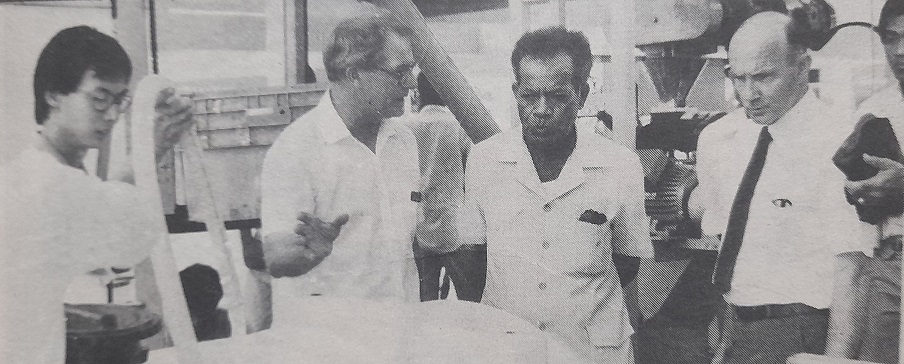In 1985, high technology Australian equipment was featured during a display at the Suva Civic Centre and a special compact bio-diesel machine that enabled a farmer to produce his own seed was the highlight of the showcase.
The display was open to the public and included a bio-diesel fuel machine, switchgear and electrical accessories, heat exchangers and recovery units along with a range of solar and conventional pumps.
An article published by The Fiji Times on March 20, 1985, stated this display at the Capital City would bring about good changes to the country.
Also on display were photo-voltaic panels, regulators and refrigeration and water pumps, small water turbines and a small hydro-electric plant and electrical connectors.
Several companies displayed solar hot water systems as a number of consultancy firms were offering their expertise in energy management systems and equipment.
Many companies had their own representatives on the stands, while others were managed by local agents.
The Senior Trade Commissioner, Suva, Bob Jennings, and members of his staff were also in attendance.
As for the special compact bio-diesel machine that allowed farmers to produce their own seed, it was promoted as a low-cost, simple process development by Bio-Energy (Australia) Pty Ltd and was already internationally recognised as a breakthrough in the search for a renewable energy source.
The machinery itself was self-contained, could be made to any size depending on the type of seeds used and the amount of diesel required.
It was light, transportable and could be operated manually or automatically.
The company said the use of biofuel could cut expenditure on diesel by 30 per cent and was ideal for any country where crops were grown for a defined market. Another company with an eye on the cost of fuel was Merz and McLelland and Partners.
This leading consulting company advised its clients to look at biomass products such as coconut husk and sugar cane with solar and wind energy.
Martin Thomas, a partner in the company who was representing the firm at the display, said many industries had wasted products that could be used to provide energy.
The company had been advertising industry and commerce throughout the South Pacific and South-East Asia since 1954.
In recent years, it provided engineering, inspection and project management services to Fiji Electricity Authority for the electrical and mechanical work on the Monasavu hydro-electric project on Viti Levu.
Another consultancy firm, R J Kell and Co Pty Ltd, specialised in survey for electricity transmission lines through rugged terrain.
The company’s principal, Russell Kell, oversaw the location survey, pegging and preparation of plants for power lines.
Mr Kell had been involved in this line of work for 35 years and in that time had surveyed 13,000km of transmission lines in Australia, Papua New Guinea, Fiji, Samoa and the Solomon Islands.
He usually employed a zigzag traverse to avoid clearing large timber and cause least disturbance to the environment.



